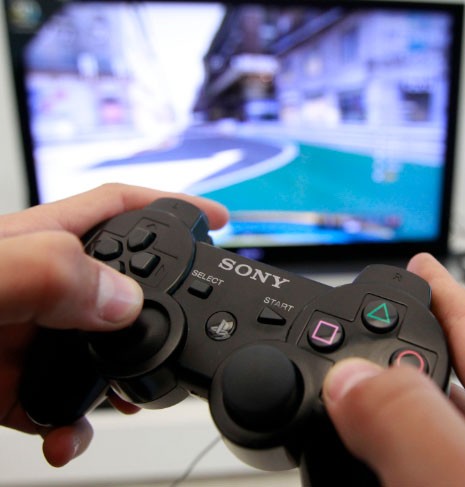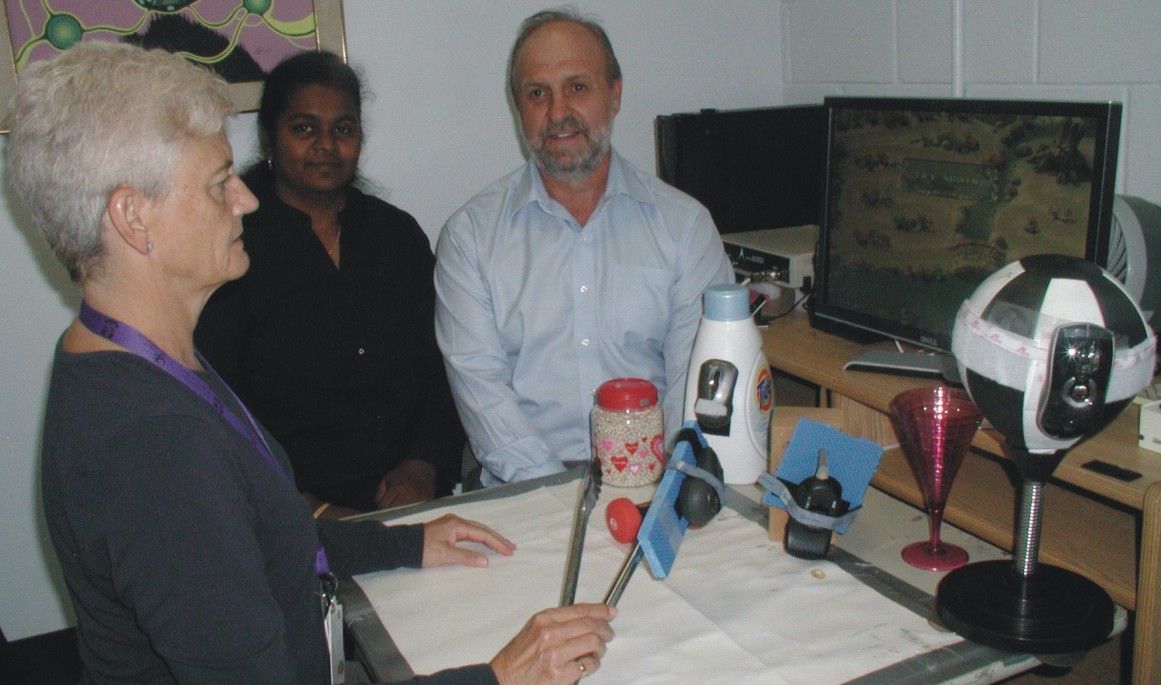
School of Medical Rehabilitation develops video game rehab
Who says video games are a waste of time?
A research group from the School of Medical Rehabilitation (SMR) at the U of M has developed a video game based rehabilitation platform that provides therapy and outcome monitoring for people living with arthritis of the hands.
Nearly any object, utensil and/or body part can be changed to function exactly as a computer mouse by attaching the motion sensor. This smart device converts signals from miniature motion sensors to signals equivalent to that of a computer mouse.
Nearly any object, utensil and/or body part can be changed to function exactly as a computer mouse by attaching the motion sensor.
Multiple objects with varied sizes, shapes, weights and functional demands for precision can be used for exercise and to practice a variety of gross or fine motor skills – all the while having fun playing computer games. The data is then relayed back to Srikesavan and her team, where evaluations and recommendations are made.
The platform, recently highlighted in a Canadian Institutes of Health Research (CIHR) Institute of Musculoskeletal Health and Arthritis (CIHR–IMHA) publication titled Celebrating the impact of health research: success stories in arthritis, bone, muscle, musculoskeletal rehabilitation, oral health, and skin, aims to improve hand function in people with arthritis and, in doing so, restore some of the satisfactions of daily life.

Barbara Shay demonstrates the video game rehabilitation platform that provides therapy for people with arthritis, with Cynthia Swarnalatha Srikesavan and Tony Szturm.
Cynthia Swarnalatha Srikesavan, a PhD graduate student in the Applied Health Sciences Program at the U of M, says the platform and application developed by her team will have a unique and long-lasting impact on those living with the joint disorder.
“As it stands right now, there is currently no viable long-term home-based rehab program for people with arthritis of the hands. Typically, home-based programs are difficult to monitor, and often patients lose interest in the programs themselves,” explains Srikesavan.
“This technology is catered and individualized to each person’s preferences, so it remains fun and interesting. We can also monitor each individual session, which helps us evaluate each person’s progress.”
“This technology is catered and individualized to each person’s preferences, so it remains fun and interesting. We can also monitor each individual session, which helps us evaluate each person’s progress.”
The technology for the platform was first developed in 2006. SMR, along with the department of electrical & computer engineering, designed a device that could effectively replace a standard computer mouse when doing exercises to rehabilitate hand function.
According to Srikesavan, this technology will greatly benefit those living in rural and remote areas, where immediate accesses to rehab programs and specialists are limited at best. “Since we can customize the platforms and evaluate the data from a far, we can minimize the frequency of visits arthritis rehab patients make to see specialists, which benefits the rural populations.”
Research at the University of Manitoba is partially supported by funding from the Government of Canada Research Support Fund.






